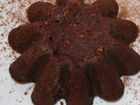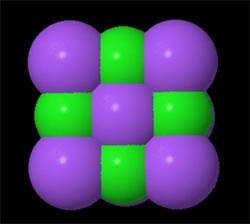Scientific Research on Chocolate
New cocoa processing method produces fruitier, more 'flowery' dark chocolate. Aprll 2022. "...Producing chocolate, one of the world's most beloved sweets, is a multistep process beginning with freshly harvested cocoa beans. People have been experimenting with chocolate-making for millennia, and even today, new methods are still being introduced. Now, researchers have found that an alternative processing step called 'moist incubation' results in a fruitier, more flowery-tasting dark chocolate than the conventional fermentation process. .."Science Daily April 27,2022
Conching chocolate is a prototypical transition from frictionally jammed solid to flowable suspension with maximal solid content. May 2019. The science of what makes good chocolate has been revealed by researchers studying a 140-year-old mixing technique. Scientists have uncovered the physics behind the process -- known as conching -- which is responsible for creating chocolate's distinctive smooth texture.Proceedings of the National Academy of Sciences, May 7, 2019; DOI: 10.1073/pnas.1901858116
Dark chocolate consumption reduces stress and inflammation -- April (2018) -New research shows there might be health benefits to eating certain types of dark chocolate. Findings from two studies being presented today at the Experimental Biology 2018 annual meeting in San Diego show that consuming dark chocolate that has a high concentration of cacao (minimally 70% cacao, 30% organic cane sugar) has positive effects on stress levels, inflammation, mood, memory and immunity. While it is well known that cacao is a major source of flavonoids, this is the first time the effect has been studied in human subjects to determine how it can support cognitive, endocrine and cardiovascular health.Loma Linda University
Habitual chocolate consumption and risk of cardiovascular disease among healthy men and women June 2015 -Eating up to 100 g of chocolate every day is linked to lowered heart disease and stroke risk. The calculations showed that compared with those who ate no chocolate higher intake was linked to an 11% lower risk of cardiovascular disease and a 25% lower risk of associated death. Conclusions: Cumulative evidence suggests that higher chocolate intake is associated with a lower risk of future cardiovascular events, although residual confounding cannot be excluded. There does not appear to be any evidence to say that chocolate should be avoided in those who are concerned about cardiovascular risk. Heart 2015;101:1279-1287 doi:10.1136/heartjnl-2014-307050
The Acute Electrocortical and Blood Pressure Effects of Chocolate. Neuro Regulation, 2015 -Chocolate increases brain characteristics --inmproves attention-- helps on mid-day slump. An EEG study shows chocolate can increase brain characteristics of attention and significantly affect blood pressure levels. Historically, chocolate has been recognized as a vasodilator, meaning that it widens blood vessels and lowers blood pressure in the long run, but chocolate also contains some powerful stimulants. Researchers wanted to investigate if people who consume chocolate would see an immediate stimulant effect. The study, published in the journal NeuroRegulation and sponsored by the Hershey Company, is the first to examine the acute effects of chocolate on attentional characteristics of the brain and the first-ever study of chocolate consumption performed using electroencephalography, or EEG technology. EEG studies take images of the brain while it is performing a cognitive task and measure the brain activity.Conclusions: This study suggests an acute stimulating effect of cacao on the human brain and vasoconstrictive effects on peripheral vasculature, the latter of which appear to be offset by an L-theanine additive. Significance: This is the first known study to investigate acute EEG effects of consuming chocolate and suggests a potential attention-enhancing effect. See Abstract and Full text of Article
More flavorful, healthful chocolate could be on its way--2015While chocolate has many health benefits -- including potentially lower blood pressure and cholesterol and reduce stroke risk. Researchers now claim to have found a way to make chocolate even more nutritious -- and sweeter. The research team divided 300 pods into four groups that were either not stored at all or stored for three, seven or 10 days before processing. This technique is called “pulp preconditioning.” After each storage period passed, fermentation and drying were done as usual. He reports that the seven-day storage resulted in the highest antioxidant activity after roasting. On addition by slower roasting at a lower temperature the antioxidant activity was increased compared to beans roasted with the conventional method. See News Release --American Chemical Society
Dark chocolate consumption improves leukocyte adhesion factors and vascular function in overweight men Dark chocolate helps restore flexibility to arteries while also preventing white blood cells from sticking to the walls of blood vessels. Both arterial stiffness and white blood cell adhesion are known factors that play a significant role in atherosclerosis. What's more, the scientists also found that increasing the flavanol content of dark chocolate did not change this effect. This discovery was published in the March 2014 issue of The FASEB Journal. See Abstract
Neurovascular coupling, cerebral white matter integrity, and response to cocoa in older people -- 2013 There is a strong correlation between neurovascular coupling and cognitive function, and both can be improved by regular cocoa consumption in individuals with baseline impairments. Better neurovascular coupling is also associated with greater white matter structural integrity. Read Abstract
Influence of roasting conditions on the biogenic amine content in cocoa beans of different Theobroma cacao cultivars-Food Research International - 2013
Roasting process may significantly modify the profile and levels of biogenic amines. Tyramine was the most abundant amine in raw cocoa beans, followed by tryptamine and 2-phenylethylamine. Serotonin and dopamine were presented only in small amounts. However, it was found that roasted cocoa beans contained mainly 2-phenylethylamine, followed by tyramine, tryptamine, serotonin and dopamine. Parameters of roasting have a significant effect on the levels of each amine in all types of roasted beans. The highest amount of biogenic amines was observed in the samples roasted at the highest temperatures and in the air with increased humidity. In addition, the results revealed that the cacao cultivars significantly affect the levels of biogenic amines.
Influence of roasting conditions on the biogenic amine content in cocoa beans of different Theobroma cacao cultivars. See full Abstract
(2010) Potential Benefit of Dark Chocolate for Liver Disease Patients
According to the Spanish research, eating dark chocolate reduces damage to the blood vessels of cirrhotic patients and also lowers blood pressure in the liver according to new research presented April 15 at the International Liver CongressTM 2010, the Annual Meeting of the European Association for the Study of Liver in Vienna, Austria. read more
Grassi et.al (2005) Cocoa Reduces Blood Pressure and Insulin Resistance and Improves Endothelium-Dependent Vasodilation in Hypertensives
Grassi et.al reports that cocoa reduces blood pressure and insulin resistance and improves endothelium-dependent vasodilation in hypertensives. Consumption of flavanol-rich dark chocolate (DC) has been shown to decrease blood pressure (BP) and insulin resistance in healthy subjects, suggesting similar benefits in patients with essential hypertension (EH). In summary, Dark Chocolate decreased BP and serum LDL cholesterol, improved FMD, and ameliorated insulin sensitivity in hypertensives. These results suggest that, while balancing total calorie intake, flavanols from cocoa products may provide some cardiovascular benefit if included as part of a healthy diet for patients with EH. Read full article in Hypertension
Vlachopoulos et.al (2005) Effect of dark chocolate on arterial function in healthy individuals. Their study shows for the first time that consumption of dark chocolate acutely decreases wave reflections, that it does not affect aortic stiffness, and that it may exert a beneficial effect on endothelial function in healthy adults. Chocolate consumption may exert a protective effect on the cardiovascular system; further studies are warranted to assess any long-term effects. Read full article in Blodd Vessels.
Plasma antioxidants from chocolate: (2003) . Nature 424, 1013. Serafini, M., Bugianesi, R., Maiani, G., Valtuena, S., De Santis, S. and Crozier, A. "Here we show that consumption of plain, dark chocolate results in an increase in both the total antioxidant capacity and the (-)epicatechin content of blood plasma, but that these effects are markedly reduced when the chocolate is consumed with milk or if milk is incorporated as milk chocolate." . Read more...
|
Science of Chocolate

What are the health benefits of Chocolate?
What are the drugs in Chocolate?
Research on Chocolate and Cocoa
Who makes the best Chocolate in the World?
Related Coffee Sites
See also:
Chemical compounds in coffee that produce aroma and bitterness
Science behind pulling the perfect espresso shot
Science of Cooking
See also:
